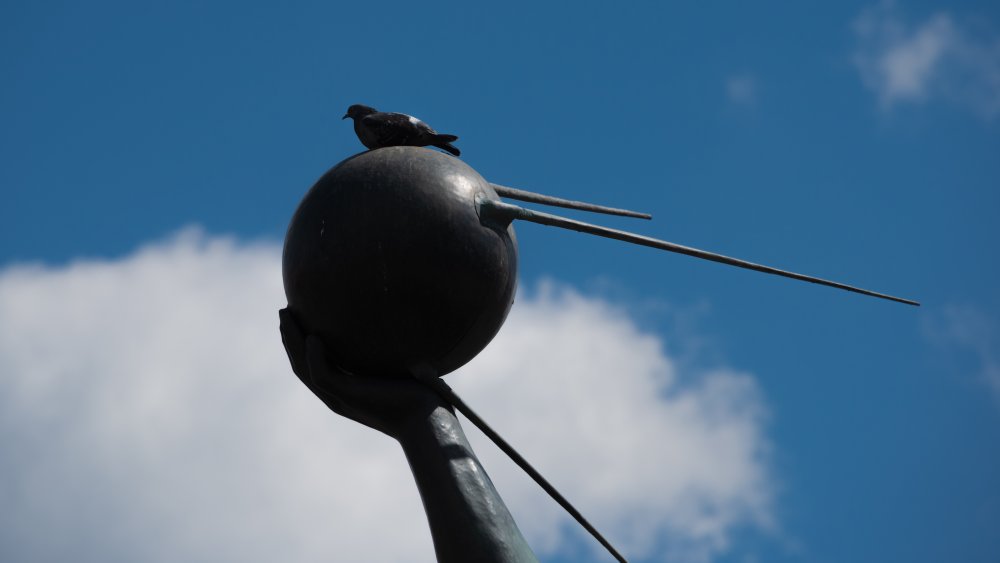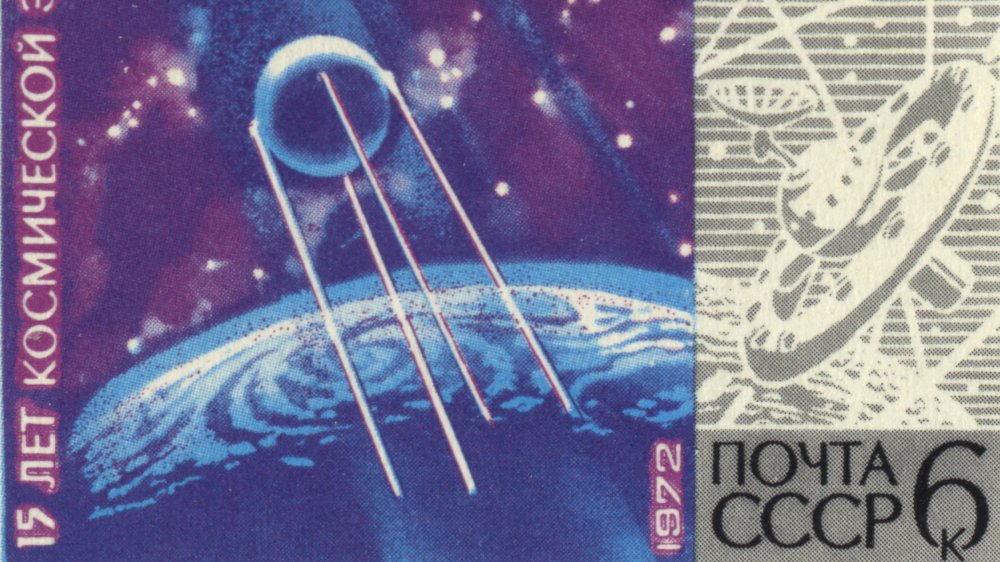Here's Why Sputnik Was Such A Big Deal
On October 4th, 1957, the Soviet Union launched a beach ball-sized satellite into space. Its name was Sputnik (Russian for "travelling companion"), and its mere existence sent the United States into a frenzy.
Today, satellites are all around us. There are an estimated 2,200 satellites in orbit around the Earth today, according to the Pittsburgh Post-Gazette, and this number is likely to increase rapidly in the coming decades. So what was so special about Sputnik?
To understand Sputnik's significance, we must look back to the early 1950s, when both the United States and the Soviet Union agreed to participate in the "International Geophysical Year" — a global event from 1957 to 1958 which emphasized scientific interchange between nations. As part of their participation, both countries announced their intention to launch small satellites into space, per Popular Science.
At the time, satellites only existed in science fiction; whichever country succeeded in launching the first real satellites would earn the right to brag about making a major scientific (and military) breakthrough. The American government was confident that the United States would win this race. But America's early rocket program faltered, partly due to competition between branches of the military. So, in October of 1957, the Soviet Union's "Sputnik 1" became Earth's first man-made satellite.
Sputnik stirred up fears of American inferiority
As soon as word of Sputnik spread to the United States, the media started a hysterical frenzy. A headline for the Wilmington Morning News called Sputnik the "FIRST ARTIFICIAL MOON," and many journalists questioned how the Soviet Union could possibly have beaten the United States.
Likewise, the American public entered a panic. For years, "American exceptionalism" had gone unquestioned; the United States had emerged from World War II as the most powerful country on Earth. Thus, being beaten into space by the Soviet Union was a blow to America's ego — a major one, given the ongoing Cold War at the time. In particular, what if the world's smaller countries started to believe that the Soviet Union was the world's true superpower in military and scientific matters? A political cartoon from the Sacramento Bee demonstrated this fear: "Who else can give you a moon?," a Russian official asks a young woman labeled "Lesser Nations." Uncle Sam's gift of roses is no match.
But concerns about Sputnik weren't purely ideological. There was also the very valid fear that the Soviet Union could be using its new satellite to spy on the United States — a prospect that, while common today, was terrifying at the time.
The public pressure that resulted from the Sputnik crisis was so great that the Eisenhower administration made it a top priority to get the American space program back on track. The Smithsonian explains that, in 1958, Eisenhower authorized the creation of the National Aeronautics and Space Administration (NASA), America's first civilian space agency. Thus, it's certainly possible that if there had been no Sputnik, there would have been no NASA.

